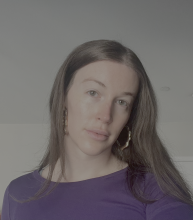Across the late twentieth century, the popular music industry faced a series of scandals of live performance with the widespread use of lipsynching. While the lipsync act originated in gay nightclubs of the ‘60s and ‘70s with transsexual striptease, the commercial use of lipsynching emerged as a novel audiovisual technique for music executives to substitute Black musicians with imitators, often white, who were deemed as more marketable--exemplified most infamously with the duo Milli Vanilli. Lipsync found footing within the pop music industry as a technique that could elide the visual presence of African American musicians while profiting from their sonic contributions. Lipsync as technique offered continuity for the commercial music industry's long standing investment in the exploitation of Black music for commercial profit (mostly white, mostly male), a practice that scholars have referred to as "Blacksound," a sonic correlate to America’s first mass entertainment genre: blackface minstrelsy (Morrison 2018, 2024).
This paper considers the case of Black Box, an Italian house music band from the 1980s, which stole the vocal demos of Martha Wash, a noted musician and vocalist from The Weather Girls and Two Tons o’ Fun, and a sample from Loleatta Holloway, one of the “most sampled vocalists in the history of recorded sound,” and sold both as the vocal stylings of French fashion model, Katrin Quinol, who headlined as the band’s lead singer for their debut album, Dreamland. The ensuing crisis of representation that lipsynching enabled serves as the basis for exploring the ongoing political-aesthetic dimensions of Blacksound in the broader context of what Moya Bailey has termed "misogynoir." This paper meditates on the implications of the lipsynching's commercialization within the American music industry and reconsiders the relationship between histories of racial impersonation and misogynoir within popular music, African American women's contributions to disco, and trans/gay legacies of vernacular performance that embody and re-encounter their sonic counterhistories.
If you are not able to physically attend we encourage you to participate via Zoom. Please use the link to attend virtually.
https://upenn.zoom.us/meeting/register/Ov-g2InJTyyPrKyaHM9ZgA#/registrat...

 The Program in Gender, Sexuality, and Women’s Studies
The Program in Gender, Sexuality, and Women’s Studies